Culture
The 50 Most Iconic Female Characters In Film History
Slide Nr 1We nominate the coolest female characters to ever command the silver screen – along with the amazing women who brought them to life.
0/50
Culture
The 50 Most Iconic Female Characters In Film History.
Slide Nr 2Diana Prince (Gal Gadot, Wonder Woman, 2017) – We start with one of the most recent additions to the badass female characters club: Gal Gadot’s triumphant turn in a groundbreaking blockbuster. Playing the legendary character with a hard-to-achieve mixture of innocence and fearlessness, Gadot’s Diana Prince gave the male-dominated comic book genre a hero with the power to literally shake things up.
1/50
Culture
The 50 Most Iconic Female Characters In Film History.
Slide Nr 3Lois Lane (Margot Kidder, Superman, 1978) – Kidder’s Lois Lane set the standard for strong female characters four decades before Wonder Woman would hit the screen. Tough and uncompromising, but with a compassionate centre, she was so much more than a damsel in distress, which is what made her so memorable.
2/50
Culture
The 50 Most Iconic Female Characters In Film History.
Slide Nr 4Clarice Starling (Jodie Foster, The Silence of The Lambs, 1991) – A huge inspiration for characters such as The X-Files’ Agent Scully, Starling fought for justice and struggled for equality in a chauvinistic workplace, all while facing off against one of cinema’s most legendary and fearsome killers. The role was also Foster’s finest hour, earning her a Best Actress Oscar.
3/50
Culture
The 50 Most Iconic Female Characters In Film History.
Slide Nr 5M (Judi Dench, James Bond Films, 1995-2012) – In a welcome break with Bond tradition, Dench became the first female M in GoldenEye. At first a brutal critic of Bond’s methods, she would become his most trusted ally, right up until her heartbreaking goodbye – after 17 years – in Skyfall.
4/50
Culture
The 50 Most Iconic Female Characters In Film History.
Slide Nr 6Nyota Uhura (Nichelle Nichols, Star Trek Franchise, 1966-1991) – Another groundbreaker, Uhura was the first African-American character to appear on TV in a role equal to that of her white peers. Uhura and her real-life counterpart, Nichelle Nichols, were reportedly an inspiration to such eminent fans as Dr. Martin Luther King, Jr., Whoopi Goldberg and the first African-American female astronaut in space, Dr. Mae Jemison.
5/50
Culture
The 50 Most Iconic Female Characters In Film History.
Slide Nr 7Elle Woods (Reese Witherspoon, Legally Blonde, 2001) – While perhaps not as revelatory as some on this list, Elle Woods’ journey from airhead to legal whiz is a charming, funny and uplifting story of overcoming the prejudices of others. Beloved by fans worldwide, Elle returned for a sequel and a stage musical.
6/50
Culture
The 50 Most Iconic Female Characters In Film History.
Slide Nr 8Cher Horowitz (Alicia Silverstone, Clueless, 1995) – The central character of one of the hallmark movies of the ‘90s, Cher makes movie history with her catchy slogans, killer sense of style and bubbly personality that makes her an It Girl without becoming a Mean Girl. Twenty years on, this ‘90s twist on Jane Austen’s Emma remains a beloved film, influencing music videos and giving rise to multiple imitation movies.
7/50
Culture
The 50 Most Iconic Female Characters In Film History.
Slide Nr 9Holly Golightly (Audrey Hepburn, Breakfast At Tiffany’s, 1961) – Incredibly, Audrey Hepburn initially felt she was too much of an introvert for what would become her most memorable performance. Outwardly the epitome of elegance, Golightly is a woman seeking reinvention in order to escape the person she once was. An unforgettable figure in Hollywood history.
8/50
Culture
The 50 Most Iconic Female Characters In Film History.
Slide Nr 10Veronica Sawyer (Winona Ryder, Heathers, 1989) – Another hero who didn’t quite fit, Veronica’s journey to self-acceptance was a lot darker and bloodier. Shunning the popular Heathers clique, Veronica and new love J.D. (Christian Slater) mete out overzealous justice on their school’s social elite. While not exactly aspirational, Veronica is a perfectly pitched slice of vicarious vengeance.
9/50
Culture
The 50 Most Iconic Female Characters In Film History.
Slide Nr 11Blanche DuBois (Vivien Leigh, A Streetcar Named Desire, 1951) – The legendary Vivian Leigh set the standard in this oft-imitated performance, playing Blanche as fabulously broken and teetering on the edge, thanks to cruel provocation by Marlon Brando’s Stanley. While he may have become the star, Leigh is the tragic, unsung hero of this movie.
10/50
Culture
The 50 Most Iconic Female Characters In Film History.
Slide Nr 12Annie Wilkes (Kathy Bates, Misery, 1990) – Maniacal fandom is taken to a terrifying conclusion by Kathy Bates, an unknown actor who became a star thanks to her portrayal of Annie’s warped infatuation with a trapped author (James Caan). Deliciously deranged, Bates delivers a captivating performance that made Misery one of the few Stephen King adaptations the writer himself enjoyed.
11/50
Culture
The 50 Most Iconic Female Characters In Film History.
Slide Nr 13Carrie White (Sissy Spacek, Carrie, 1976) – While supernatural beings are commonplace in the horror genre, the magic Sissy Spacek brings to the original Carrie lies in the relatable feel she gives the doomed character. We cringe at the humiliation she suffers, and even as her telekinetic powers arrive, the helplessness she exudes makes her doubly terrifying.
12/50
Culture
The 50 Most Iconic Female Characters In Film History.
Slide Nr 14Juno MacGuff (Elliot Page, Juno, 2007) – Pregnancy in all its glory and pain is beautifully portrayed by Elliot Page, who earned an Oscar nomination in the role of a quirky young woman who becomes pregnant by her best friend (Michael Cera). Hilarious, tender and unforgettable, Juno became a late-2000s hero.
13/50
Culture
The 50 Most Iconic Female Characters In Film History.
Slide Nr 15Marge Gunderson (Frances McDormand, Fargo, 1996) – Some characters are meant to be played by certain actors, and Frances McDormand was meant to be the lead in this Coen Bros’ masterpiece. Her ‘Minnesota Nice’ exterior barely covers a whole barrage of subtle emotions, a masterclass in acting and an unlikely ’90s favourite.
14/50
Culture
The 50 Most Iconic Female Characters In Film History.
Slide Nr 16Manuela (Cecilia Roth, All About My Mother, 1999) – The darkest side of motherhood – losing your child – is brought to vivid life in one of Pedro Almodovar’s best. Cecilia Roth is a torrent of conflicted emotions, dealing with her grief by connecting with a number of faces from the past.
15/50
Culture
The 50 Most Iconic Female Characters In Film History.
Slide Nr 17Sarah Connor (Linda Hamilton, The Terminator Films, 1984-1991) – What do you do when the fate of the world is on your shoulders? For Sarah Connor, it involved fighting for her life and her son, becoming a fierce protector and an indelible icon of action movie history. Think Arnie was the hero of the Terminator films? Think again!
16/50
Culture
The 50 Most Iconic Female Characters In Film History.
Slide Nr 18Furiosa (Charlize Theron, Mad Max: Fury Road, 2015) – Another character who stole the movie from the title star, the ruthless Furiosa became the beating heart of this heart-pounding, high-speed chase film, rescuing young women from the fearsome Immortan Joe. A feminist hero and all-round badass, a spin-off is essential.
17/50
Culture
The 50 Most Iconic Female Characters In Film History.
Slide Nr 19Trinity (Carrie-Anne Moss, The Matrix, 1999) – At a time when few women featured in action movies, Trinity matched Neo blow for blow in several classic moments of this cult film (including the first, and best, ‘bullet time’ sequence). Ultimately giving her life for the man she loved, her journey through the saga is thrilling.
18/50
Culture
The 50 Most Iconic Female Characters In Film History.
Slide Nr 20Foxy Brown (Pam Grier, Foxy Brown, 1974) – This very ‘70s tale of revenge was criticised at the time for its portrayal of African-American femininity, but Foxy Brown’s vengeful hero has been held up by many as an icon for the female empowerment movement of the time.
19/50
Culture
The 50 Most Iconic Female Characters In Film History.
Slide Nr 21Bonnie Parker (Faye Dunaway, Bonnie and Clyde, 1967) – The beret-wearing half of cinema’s greatest crime duo is much more than a basic villain. Childlike and charming, but also sinister and relentless, she is the dark foil to Warren Beatty’s slick bank robber. A baddie you will love to hate!
20/50
Culture
The 50 Most Iconic Female Characters In Film History.
Slide Nr 22Sally Bowles (Liza Minnelli, Cabaret, 1972) – Musicals rarely get as dark as Cabaret, set in Berlin just before the outbreak of World War II. At the centre is Minnelli’s Sally Bowles, the epitome of the tragic performer, a rose consumed by the seediness and despair that surrounds her.
21/50
Culture
The 50 Most Iconic Female Characters In Film History.
Slide Nr 23“Baby Jane” & Blanche Hudson (Bette Davis and Joan Crawford, Whatever Happened To Baby Jane?, 1962) – The off-screen feud between these two stars often overshadows their terrific performances, creating the (albeit offensively named) ‘psycho-biddy’ sub-genre through their intense psychological warfare. Both stars had rarely been better, with the intense rivalry feeding the magnificence on screen.
22/50
Culture
The 50 Most Iconic Female Characters In Film History.
Slide Nr 24Mary Lee Johnson (Mo’Nique, Precious, 2009) – Some performances are so brilliant they become too uncomfortable to watch. While Mo’Nique’s portrayal of an abusive mother is disturbing, the Oscar winner infuses the character with a grit and reality that makes her one of the film’s stand-out performances.
23/50
Culture
The 50 Most Iconic Female Characters In Film History.
Slide Nr 25Nurse Ratched (Louise Fletcher, One Flew Over The Cuckoo’s Nest, 1975) – Was Nurse Ratched a representation of society’s indifference towards mental health, or just a really nasty nurse? Either way, Fletcher made the tyrannical authority figure a fearsome foe for Jack Nicholson’s R.P. McMurphy. Not bad for a star who was sixth choice for the role!
24/50
Culture
The 50 Most Iconic Female Characters In Film History.
Slide Nr 26Mary Poppins (Julie Andrews, Mary Poppins, 1964) – A carer of quite a different temperament descended on the Banks family in Disney’s timeless classic, with Julie Andrews adding to her illustrious CV with a cheerful and pragmatic character that everyone wishes could help them through life.
25/50
Culture
The 50 Most Iconic Female Characters In Film History.
Slide Nr 27Dorothy Gale (Judy Garland, The Wizard of Oz, 1939) – “There’s no place like home…” Dorothy’s journey through The Land of Oz required her to show her courage, brains and heart, leading a band of misfits while trying to find her way home. A seminal cinematic lead, she came to represent hope for all those who felt lost.
26/50
Culture
The 50 Most Iconic Female Characters In Film History.
Slide Nr 28Princess Elsa (Idina Menzel, Frozen, 2013) – Though her courageous sister Anna was just as inspiring, Disney’s ice princess spoke to fans around the world. The fact that she did more than simply wait around to be saved gave her a depth that’s been unfortunately rare in animated princess films across the ages, while her signature song, “Let It Go”, became an anthem of self-love and -acceptance for millions
27/50
Culture
The 50 Most Iconic Female Characters In Film History.
Slide Nr 29Amélie Poulain (Audrey Tautou, Amélie, 2001) – There’s a reason the poster for Amélie adorns the wall of just about every film student’s bedroom. As beguiling as the city that surrounds her, she’s a dreamer who orchestrates happiness for others, and revels in life’s little joys. What’s not to love?
28/50
Culture
The 50 Most Iconic Female Characters In Film History.
Slide Nr 30Chihiro Ogino (Rumi Hiiragi, Spirited Away, 2001) – Forced to fend for herself in a spirit world, Chihiro’s transformation from an easily scared kid to a brave girl who faces her fear in order to protect her loved ones is remarkable to watch – and typical of the kind of much-needed complex female characters that Studio Ghibli became famous for.
29/50
Culture
The 50 Most Iconic Female Characters In Film History.
Slide Nr 31Princess Leia Organa (Carrie Fisher, The Star Wars Films, 1977-2017) – The late, great Carrie Fisher sadly didn’t live to see her most famous character’s last appearance in The Last Jedi, but she must have known the impact the character has made. A tough-talking leader, she was a pioneer for women in mainstream film.
30/50
Culture
The 50 Most Iconic Female Characters In Film History.
Slide Nr 32Cleopatra (Elizabeth Taylor, Cleopatra, 1963) – When it comes to the glamour of old Hollywood, few can match Elizabeth Taylor in her most famous role. With production costs of over $31 million (over $300 million today), Taylor embodied the splendour and majesty of the legendary Egyptian ruler, fending off the advances of Rome and the passions of Mark Anthony (real-life husband Richard Burton).
31/50
Culture
The 50 Most Iconic Female Characters In Film History.
Slide Nr 33Celie Harris Johnson (Whoopi Goldberg, The Color Purple, 1985) – Those who thought Whoopi Goldberg could only play comedy parts were blown away by her in Steven Spielberg’s drama, playing a meek woman in the first part of the 20th century, enduring every indignity and abuse imaginable as she struggles to be treated equally both in terms of race and gender. A heartbreaking display from a true great.
32/50
Culture
The 50 Most Iconic Female Characters In Film History.
Slide Nr 34Raimunda (Penélope Cruz, Volver, 2006) – Though she’s an established star in English-speaking Hollywood, Cruz has always been at her best when performing in Spanish (or perhaps working with Spanish directors who give her interesting roles). She’s never better than in Volver, playing a strong parent holding together a family rife with secrets.
33/50
Culture
The 50 Most Iconic Female Characters In Film History.
Slide Nr 35Scarlett O’Hara (Vivien Leigh, Gone With The Wind, 1939) – One of the most quotable speeches in movie history, O’Hara’s declaration that “tomorrow is another day” is the perfect sign-off for a character who refused to be what the world expected of her. Even in the face of Rhett Butler’s rejection, she would rise again.
34/50
Culture
The 50 Most Iconic Female Characters In Film History.
Slide Nr 36Rose DeWitt Bukater (Kate Winslet, Titanic, 1997) – One of the most successful films of all time is lived through the eyes of Winslet’s Rose, a woman torn between social responsibility and love. It’s a journey that breaks the hearts of all who see it, and makes Rose a classic screen idol.
35/50
Culture
The 50 Most Iconic Female Characters In Film History.
Slide Nr 37Frances “Baby” Houseman (Jennifer Grey, Dirty Dancing, 1987) – A similar coming-of-age dilemma is faced by Baby (although there was no sinking ship to survive!). She turns her back on her parents for the dangerous, charismatic Johnny Castle (Patrick Swayze), blossoming from mousy teenager to confident young woman in just a few dance steps.
36/50
Culture
The 50 Most Iconic Female Characters In Film History.
Slide Nr 38Maria Von Trapp (Julie Andrews, The Sound Of Music, 1965) – Few stars can portray resilience as convincing as Julie Andrews, and in yet another career-making role, she holds together the Von Trapp family through the onset of war. Proof that, in musicals at least, there’s nothing that can’t be solved with a song.
37/50
Culture
The 50 Most Iconic Female Characters In Film History.
Slide Nr 39Hermione Granger (Emma Watson, The Harry Potter Films, 2001-2011) – Arguably the most prominent young female cinema character of the early 2000s, fans grew up with the intelligent, fearless and loyal Hermione across a decade of movie hits. Whether battling demons or telling off Ron Weasley, she always left her mark.
38/50
Culture
The 50 Most Iconic Female Characters In Film History.
Slide Nr 40Moana (Auli’i Cravalho, Moana, 2016) – The latest in a new generation of Disney princesses, rough-and-tumble Polynesian royalty Moana’s main desire is to seek out adventure and fulfil the destiny of her ancestors. Oh, and sing some brilliant songs with Dwayne Johnson’s Maui along the way!
39/50
Culture
The 50 Most Iconic Female Characters In Film History.
Slide Nr 41Leeloo (Milla Jovovich, The Fifth Element, 1997) – Bruce Willis is normally the one doing the saving, but Milla Jovovich’s star-making turn reverses the roles as he becomes the sidekick to her saviour. Or, to put it in Leeloo’s own unique way, “Me fifth element – supreme being. Me protect you.”
40/50
Culture
The 50 Most Iconic Female Characters In Film History.
Slide Nr 42Melanie Daniels (Tippi Hedren, The Birds, 1963) – Whereas many of Hitchcock’s “Blondes” were femme fatale figures or victims, Tippi Hedren was the hero of her own story as she fought an unexplained swarm of birds. The hellish image of her fending off the winged attackers – and her own real-life ordeals with the director himself – will be thought of for as long as Hitchcock’s work is celebrated.
41/50
Culture
The 50 Most Iconic Female Characters In Film History.
Slide Nr 43Margo Channing (Bette Davis, All About Eve, 1950) – Bette Davis appears again in another story of fading fame. An ageing star fearing being replaced, Davis is breathtaking as she slowly begins to suspect a devoted fan (Anne Baxter) may be usurping her. A master class in on-screen insecurity.
42/50
Culture
The 50 Most Iconic Female Characters In Film History.
Slide Nr 44Norma Desmond (Gloria Swanson, Sunset Boulevard, 1950) – Fame had long left Ms. Desmond by the time we see her story of spiralling madness. A faded silent era star who believes her comeback is just around the corner, Swanson is superb. All together now: “All right, Mr. DeMille, I’m ready for my close-up”.
43/50
Culture
The 50 Most Iconic Female Characters In Film History.
Slide Nr 45Leticia Musgrove (Halle Berry, Monster’s Ball, 2001) – Glamorous star Berry goes emotionally raw for her Oscar moment as a woman who has lost everything, finding common ground in the most unlikely place: with Billy Bob Thornton’s racist retired prison warden. While hard to watch, Berry etched herself into film history by giving everything she had.
44/50
Culture
The 50 Most Iconic Female Characters In Film History.
Slide Nr 46Thelma and Louise (Susan Sarandon and Geena Davis, Thelma and Louise, 1991) – We couldn’t separate these Southern ladies, not least because during their raucous road trip across America, they never gave up on each other. The true meaning of defiance and friendship.
45/50
Culture
The 50 Most Iconic Female Characters In Film History.
Slide Nr 47Beatrix Kiddo (Uma Thurman, Kill Bill, 2003-4) – What makes “The Bride’s” bloody quest so compelling is its purity – she’s a mother, they took her baby, and everyone will pay. Thurman is magnetic in both Kill Bill films, bringing to life a character she partly created.
46/50
Culture
The 50 Most Iconic Female Characters In Film History.
Slide Nr 48Yu Shu Lien (Michelle Yeoh, Crouching Tiger, Hidden Dragon, 2000) – While the action takes the spotlight in Ang Lee’s Oscar winner, no amount of fury can match the internal struggle felt by Yeoh, denying her feelings for Li Mu Bah (Chow Yun-Fat) in respect of the life she has chosen.
47/50
Culture
The 50 Most Iconic Female Characters In Film History.
Slide Nr 49Rey (Daisy Ridley, The Star Wars Films, 2015-) – A new kind of hero for a new kind of trilogy, Rey was initially reminiscent of Luke Skywalker when she first appeared in The Force Awakens; however, she has since established herself as a separate and unique character. While Finn and Poe Dameron have been fun, the fate of a universe lies in this woman’s hands.
48/50
Culture
The 50 Most Iconic Female Characters In Film History.
Slide Nr 50Katniss Everdeen (Jennifer Lawrence, The Hunger Games Films, 2012-15) – Lawrence was only 21 when she became Katniss Everdeen, the saviour of her dystopian society. Despite her youth, she plays Katniss as world-weary, a reluctant hero who accepts that the only way to achieve the peace she longs for is to lead a revolution.
49/50
Culture
The 50 Most Iconic Female Characters In Film History.
Slide Nr 51Ellen Ripley (Sigourney Weaver, The Alien Films, 1979-97) – You didn’t think we’d forget her, did you? One of the most complex, heroic characters in modern cinema, Ripley was someone to look up to regardless of gender or background. She was a survivor, she was a fighter, and she embodied the kind of bravery we all aspire to.
50/50


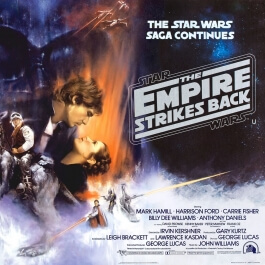
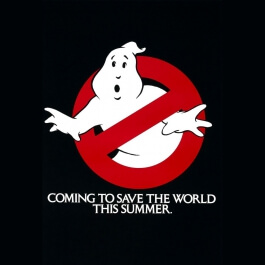
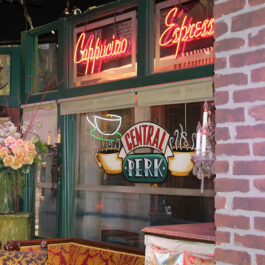
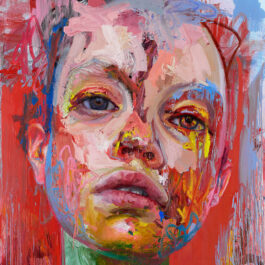




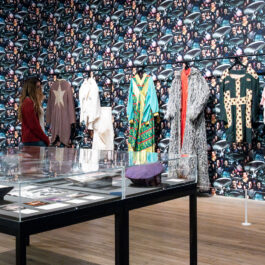
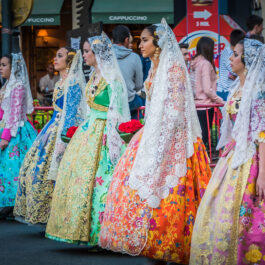
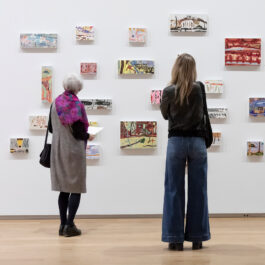
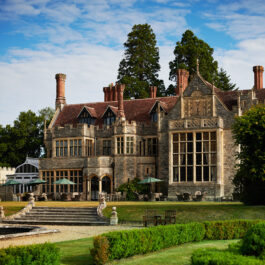
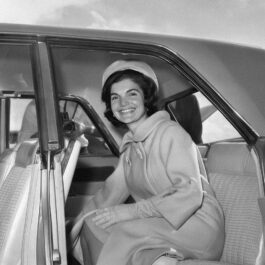

Sorry, the comment form is closed at this time.